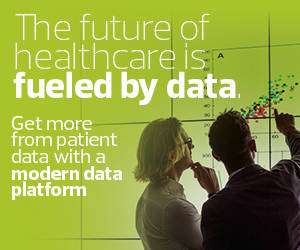How a Partner Can Help Health Systems Set Up a Modern Data Platform
At CDW, we usually start the modern data platform implementation process by working with the healthcare organization’s data analytics team. We start the discussion by focusing on what a modern data platform is and what the organization is currently doing, both on-premises and in the cloud. Then we pull in others, including the organization’s cloud and cybersecurity teams, to discuss their willingness and readiness to have a data platform in the cloud.
We also ask about the organization’s preferred cloud providers to inform our technology and strategy recommendations during the implementation process. If an organization already has a commitment with Azure, Google or AWS to spend a certain amount on cloud services, then we can accommodate that, so the organization is using what it has already paid for.
Health systems can set up a modern data platform successfully with many cloud vendors and tools. Our recommendations are based on established best practices, so there’s no trial and error needed regarding which cloud vendor to use. Our cloud services team, along with our data and analytics experts, helps health IT teams design the right approach.
If an organization doesn’t have a cloud provider yet, we make recommendations based on proven, best-of-breed tools and technologies that have worked well with our customers in the past.
Healthcare organizations can also take part in our modern data platform workshop, where we assess their current state and design a future state for their data platform. We help them see what’s possible, and we share lessons learned and show how we’ve helped others in the healthcare space.
After that, we can start doing the real work, either for or alongside the organization, training as we design, build and implement the platform. Once the data platform has been implemented, CDW can continue to partner to help evolve platform capabilities and expand into data fabric, real-time data and advanced analytics. We design the platform so an organization can choose to manage it on its own, which is the most common outcome, or continue partnering with CDW and our managed services team to maintain the platform. A healthcare organization can customize our services to meet their needs.
DIVE DEEPER: Understand the importance of having a modern data platform in healthcare.
Tips for Modern Data Platform Implementation in Healthcare
Organizations can also be modern in their approach to building a data platform. Operational, IT and clinical leaders need to determine why a modern data platform would be beneficial for their healthcare organization. Then, once the data is identified and organized, organizations can create dashboards and reporting systems to support descriptive and predictive analytics. The next step is to develop prescriptive analytics capabilities, including machine learning algorithms and artificial intelligence to improve patient outcomes and further increase value in healthcare.
As healthcare organizations begin their modern data platform journey, they should lean on those early adopters. There are many healthcare organizations that are willing to share what they’ve learned from their data analytics modernization and transformation.
Organizations can also lean on the experts at CDW to lay out best practices for them. Whether an organization wants to run a data platform in the cloud or on-premises, CDW can design a system that works for them, no matter their size. There is a rightsized approach for every health system that can help it grow and modernize its data analytics.
This article is part of HealthTech’s MonITor blog series.














